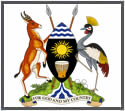Fisheries Management
The Directorate of Fisheries Resources (DiFR), provides guidance and support for sustainable management practices in fisheries, including regulations, licensing, and enforcement.
Fisheries Regulations and Licensing guidellines are accessible on: Regulations and Policies
Below are some of activities we have embraced, towards the management of fisheries resources.
Previous Activities:
- Stock Assessments:: We Conducted surveys and assessments of fish stocks in various water bodies to understand their status and inform management decisions. The 2010, 2019, 2020 and 2021 Surveys are accessible on: Reports
- Regulatory Frameworks:: We Developed and implemented are number of regulations, laws, and policies governing fishing activities, including licensing requirements, catch limits, and gear restrictions. These Fisheries Regulations, Laws and Policies together with licensing requirements, are accessible on: Regulations and Policies and Acts and Laws
- Community Engagement: Through Partnerships, We Organized outreach programs, workshops, and training sessions to engage with fishing communities and promote sustainable fishing practices. Training materials, for both Trainers and Trainees, are accessible on: Manuals_BDS (for Fisheries Business Development Service) and Manuals_Others (for all other Fisheries related activities)
- Enforcement Operations: We Collaborate with the Fisheries Protection Unit - FPU, to patrol fishing grounds, enforce regulations, and combat illegal fishing activities.
- Research Projects: We Undertake research initiatives to study the ecology, biology, and behavior of fish species, as well as the impacts of environmental factors and human activities on fish populations.
- Capacity Building: We Provide training and capacity-building programs for fisheries officers, extension workers, and other stakeholders involved in fisheries management. Training materials, for both Trainers and Trainees, are accessible on: Manuals_BDS (for Fisheries Business Development Service) and Manuals_Others (for all other Fisheries related activities)
Current Activities:
- Data Collection and Analysis: We Continuously collect and analyze data on fish populations, catch statistics, and environmental parameters to monitor the health of fisheries resources.
- Policy Review and Development: We Review existing policies and regulations to assess their effectiveness and relevance, and developing new policies to address emerging challenges and priorities in fisheries management.
- Stakeholder Engagement: We Facilitate dialogue and collaboration among government agencies, fishing communities, NGOs, and other stakeholders to foster shared responsibility for sustainable fisheries management.
- Ecosystem Monitoring: We Monitor the health and integrity of aquatic ecosystems, including water quality, habitat condition, and biodiversity, to identify and address threats to fish populations.
- Technology Adoption: We Explore and promote the adoption of new technologies and practices, such as improved fishing gear, aquaculture techniques, and fish processing methods, to enhance productivity and sustainability.


